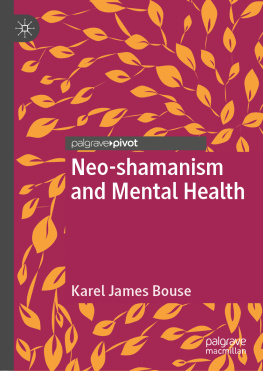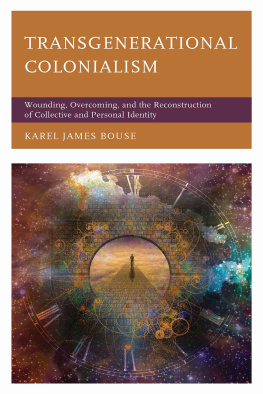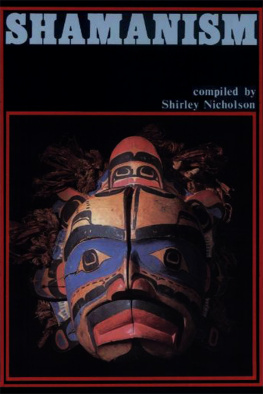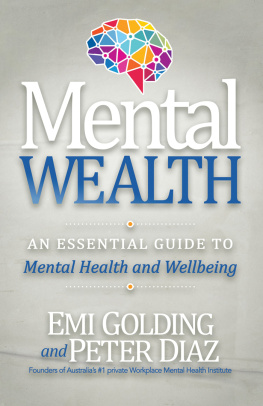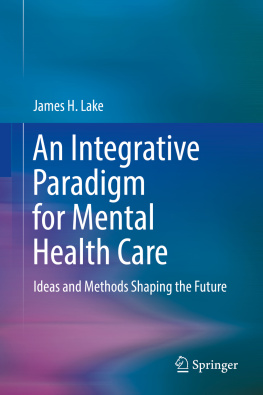Karel James Bouse - Neo-shamanism and Mental Health
Here you can read online Karel James Bouse - Neo-shamanism and Mental Health full text of the book (entire story) in english for free. Download pdf and epub, get meaning, cover and reviews about this ebook. year: 2019, publisher: Springer International Publishing, genre: Religion. Description of the work, (preface) as well as reviews are available. Best literature library LitArk.com created for fans of good reading and offers a wide selection of genres:
Romance novel
Science fiction
Adventure
Detective
Science
History
Home and family
Prose
Art
Politics
Computer
Non-fiction
Religion
Business
Children
Humor
Choose a favorite category and find really read worthwhile books. Enjoy immersion in the world of imagination, feel the emotions of the characters or learn something new for yourself, make an fascinating discovery.
- Book:Neo-shamanism and Mental Health
- Author:
- Publisher:Springer International Publishing
- Genre:
- Year:2019
- Rating:5 / 5
- Favourites:Add to favourites
- Your mark:
- 100
- 1
- 2
- 3
- 4
- 5
Neo-shamanism and Mental Health: summary, description and annotation
We offer to read an annotation, description, summary or preface (depends on what the author of the book "Neo-shamanism and Mental Health" wrote himself). If you haven't found the necessary information about the book — write in the comments, we will try to find it.
Neo-shamanism and Mental Health — read online for free the complete book (whole text) full work
Below is the text of the book, divided by pages. System saving the place of the last page read, allows you to conveniently read the book "Neo-shamanism and Mental Health" online for free, without having to search again every time where you left off. Put a bookmark, and you can go to the page where you finished reading at any time.
Font size:
Interval:
Bookmark:
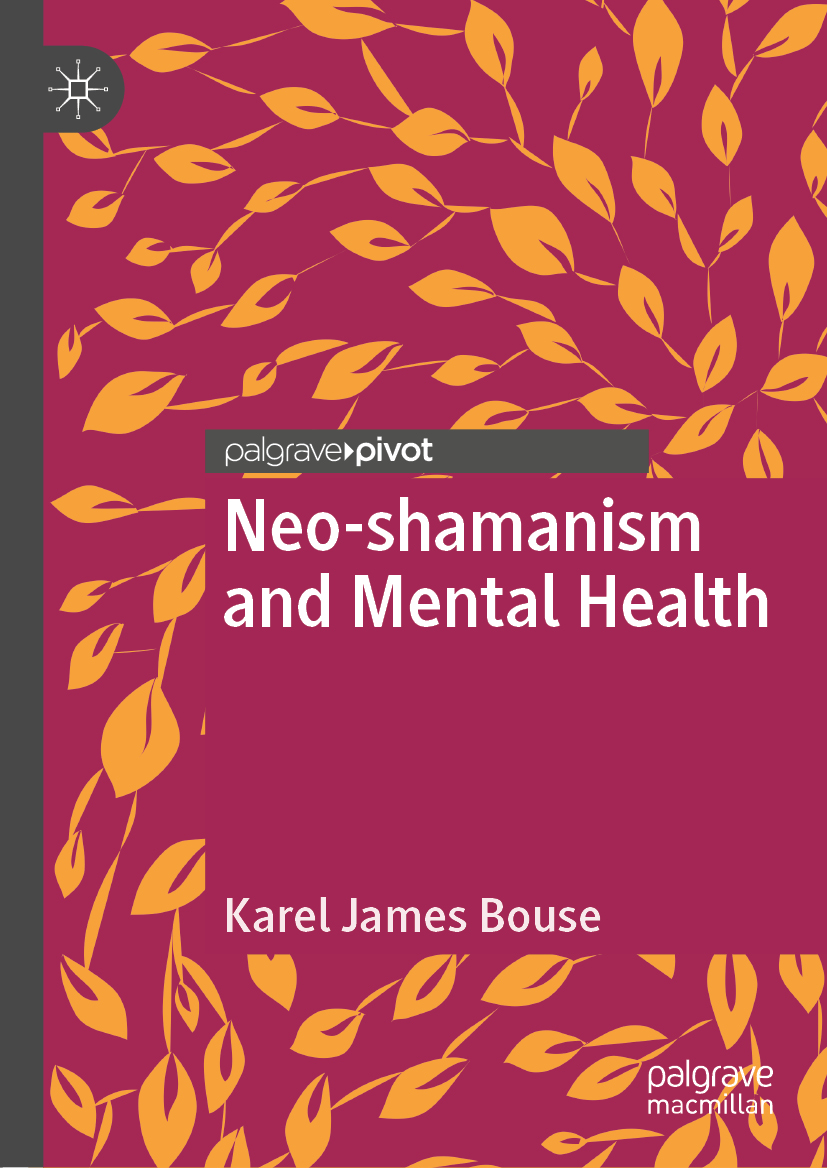
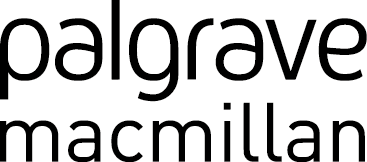
This Palgrave Pivot imprint is published by the registered company Springer Nature Switzerland AG
The registered company address is: Gewerbestrasse 11, 6330 Cham, Switzerland
This book is dedicated in thanks to Drs. Stanley Krippner, Ruth Richards, and Jacquie Lewis.
Journeys bring power and love back into you. Rumi
This book is about the ancient technology of shamanism and its potential application in contemporary life as a means of enhancing wellbeing by integrating mind, body and spirit, and strengthening ones connection to nature, the sacred and the self. It examines traditional shamanism and Neo-shamanism in order to differentiate the two practices which are simultaneously similar and different. It details a research study undertaken in 2017 which examined the practices, beliefs and lifeworlds of some contemporary Neo-shamanic practitioners in order to serve as a basis for understanding how Neo-shamanism functions in contemporary Western culture. The book allows these practitioners to describe their lifeworlds through their own recorded journeys and responses to deeply personal interview questions. It explores the potential value that the ancient technology of the shamanic journey might have as part of a controlled phenomenological qualitative research protocol for consciousness studies, and how it might benefit self-exploration as part of a supervised multi-modal wellness curriculum or therapy. Further, there is a discussion about the possible pitfalls present in contemporary Neo-shamanic practice, including the effects of cultural dissonance and spiritual bypassing. Finally the book engages in exploring the way in which Neo-shamanic practices might act as a viable adjunct to standard clinical therapeutic practice.
Neo-shamanismand Mental Health is an examination and discussion of contemporary Neo-shamanic practice and the mental health benefits that might be derived from its application to the mental health field. It is based on peer-reviewed literature, the results of a 2017 research project investigating the lifeworlds of six American Neo-shamanic practitioners , and my own observations as a student, teacher, and practitioner of Neo-shamanism for nearly three decades. Chapter is an overview of the conclusions derived from the preceding chapters, as well as presenting possible avenues of further inquiry. It also examines the potential benefits of using Neo-shamanic practice as an adjunct to standard therapeutic practices. Anomalous findings discovered through such research might hold the potential to instigate a paradigm shift away from our sensory-cognitive based concept of reality and toward expanded models of consciousness and accepted reality constructs.
There are some specific terms used repeatedly throughout this book. Below is a Glossary of the most frequently used terms to facilitate clear communication and understanding of the material.
Altered State of Consciousness(ASC) : The term altered state of consciousness refers to any psychological state different from normal waking consciousness. Although dreaming is an altered state of consciousness, the ASCs under discussion here are those in which the individual retains liminal awareness and the ability to perceive phenomena usually imperceptible while in the normal waking state (Rock & Krippner, 2007; VandenBos, 2015).
Anomalous Experience : Refers to any experience or set of experiences that fall outside of the parameters and explanations of rational, sensory-based material cognition and societal reality constructs. These include out-of-body experiences, mystical experiences, shamanic journeys, and interactions with anomalous phenomena (VandenBos, 2015).
Dasein : Dasein is the term used by Martin Heidegger to describe a way of being manifested as human that enables us to inquire into the mysteries of being, and the manner in which they might perceive and exist in the world (VandenBos, 2015). Dasein also incorporates the process of ones becoming (p. 282).
Lifeworld : This term was used by Moustakas (1994a, 1994b) to describe the filters of personal history, emotional context, and memories through which individuals frame, perceive, evaluate and respond to the outside world. It is the same concept that Harrow (2002) referred to as the inscape of the individual (p. 72).
Magic : Magic is intent-motivated and result-focused ancient practices and systems of rituals and activities utilizing energy to modify or manifest something in the material world (VandenBos, 2015). It has been described as an ineffable force through which things manifest, and our minds perceive concepts and phenomena belonging to the realms of spirit (Bouse, 2017; James, 1902). Magic has survived into contemporary times as an underground esoteric tradition (VandenBos, 2015, p. 617), and has enjoyed a resurgence in some practices associated with the New Age Movement and Neo-paganism.
Mysticism : On the one hand, mysticism is a worldview through which an individual might attain wisdom, inspiration, and revelation by means other than those of rational thought and sensory-based cognitive experience and perception. On the other hand, it is also a means through which one might connect with the divine (VandenBos, 2015, p. 683) in a religious context. The definition refers to states of intense, deep, and/or entranced meditations, contemplations, and ecstasies recounted in the accounts and sacred writings of global religious and spiritual traditions over time.
Neo-shamanism
Font size:
Interval:
Bookmark:
Similar books «Neo-shamanism and Mental Health»
Look at similar books to Neo-shamanism and Mental Health. We have selected literature similar in name and meaning in the hope of providing readers with more options to find new, interesting, not yet read works.
Discussion, reviews of the book Neo-shamanism and Mental Health and just readers' own opinions. Leave your comments, write what you think about the work, its meaning or the main characters. Specify what exactly you liked and what you didn't like, and why you think so.

